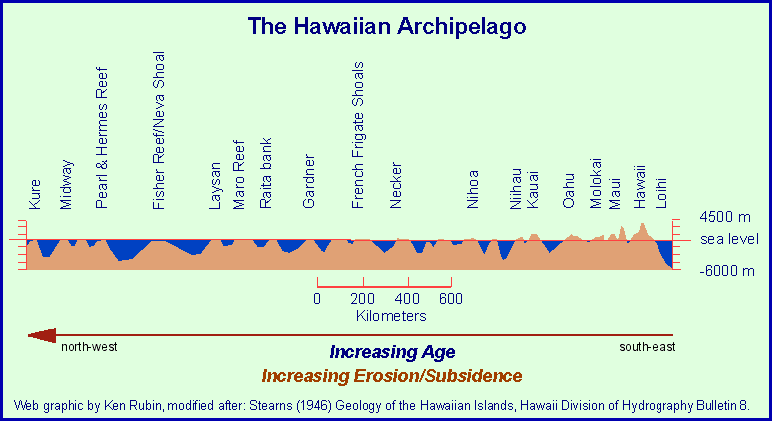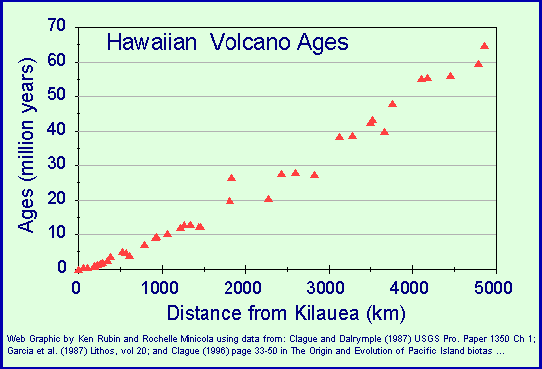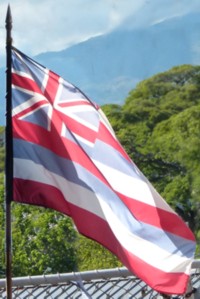History
A Creation Story
In the beginning the Pacific Ocean was a formless void. Then about 70 million years ago the Great God Vulcan said, "Let there be a firmament in the midst of the waters". So he formed a great hot spot - a hole in the earth's crust through which magma from the mantle could leak, like air leaking from a netball. Then Vulcan said, "Let the dry land appear".
On the surface of the Pacific tectonic plate, below the water, a little pimple formed - pushing the land up until it became an island and with a 'pop', some red hot molten rocks and gasses squirted into the sky. And Vulcan saw that it was good.
But soon the Pacific plate drifted north, over his hot spot. So Vulcan repeated his trick again and again, creating a chain of islands.
Lyman Museum - the formation of the archipelago
Vulcan's hotspot is presently below Mauna Loa and Kilauea and the mere mortals a' top his other mountain have noticed that there's an almost linear relationship between the age of each volcano in the chain and its distance from Kilauea, the youngest, that emerged above water just 100,000 years ago. They've also noticed that the island they call Oahu is over a million years older than their 'big island' of Hawaii.
 |
 |
Formation of the Hawaiian Archipelago - from the Hawaii Center for Volcanology website
Vulcan's islands were of pure sterile rock, born of fire. So Vulcan said, "Let the earth bring forth grass, the herb yielding seed, and the fruit tree yielding fruit after his kind, whose seed is in itself, upon my isles". Thus during the millions of years that followed, sea creatures came ashore and flotsam from trees and plant life washed ashore. Then those new-fangled bird things evolved to bring seeds in their guts and defecate in the soil. And Vulcan saw that it was good.
A long, long time later, after lying unmolested for many hundreds of millennia, just seven hundred or so years ago, Vulcan caused an eruption creating a long white cloud so that following it from far away the first human settlers arrived (or was that New Zealand?). After humans arrived an avalanche of change took place. With them they brought new plants and animals and a whole new ecosystem began to evolve. The first settlers were soon followed by others of their species, who possessed even more advanced technologies, and thus they brought even more change. Some might say devastation.
But mighty Vulcan's not concerned. He has more islands planned. Underwater nearby he's already building another, Loini, that's not yet emerged from the waters and over time he intends to sink the present lot.
Praise be to Vulcan.

